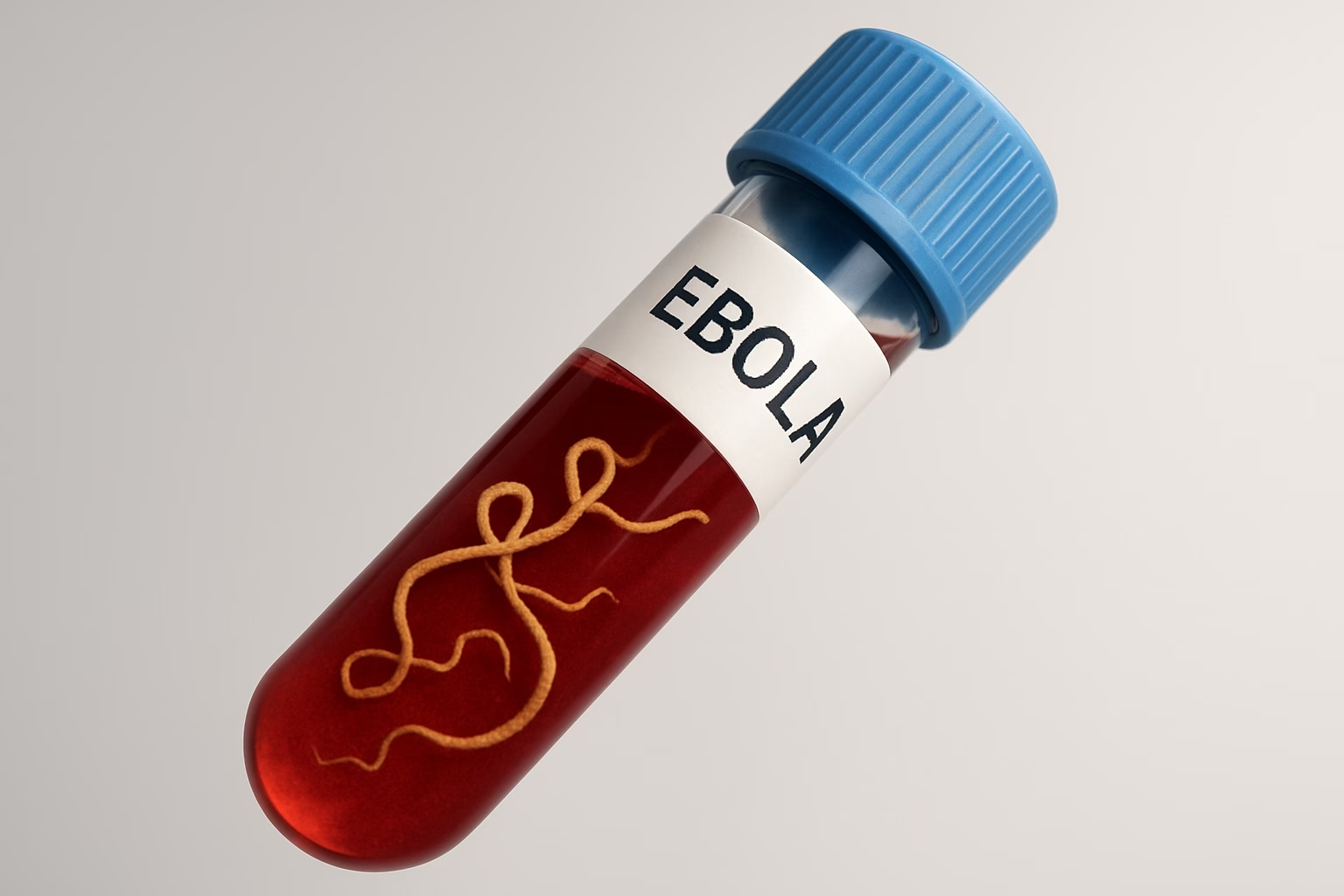The Democratic Republic of the Congo is once again facing a public health crisis following confirmation of a new outbreak of the Ebola virus. At least sixteen individuals have succumbed to the disease, including four health workers, prompting immediate mobilisation by national and international health authorities.
The outbreak has emerged in Kasai province, a region not commonly associated with previous Ebola flare-ups, with 28 suspected cases reported to date. The Congolese Ministry of Health confirmed on Thursday that laboratory tests had identified the Zaire strain—the deadliest variant of the virus—as responsible for the current wave of infections.
“The case fatality rate is estimated at 57%, although investigations and laboratory analyses are continuing to refine the situation,”
the ministry noted in its official statement, highlighting the rapidly evolving nature of the outbreak. This latest resurgence represents the sixteenth documented Ebola epidemic within the Democratic Republic of the Congo.
Ebola, classified as a viral hemorrhagic fever, spreads through direct contact with infected bodily fluids, such as blood, vomit, urine, or other secretions. Its onset is marked by flu-like symptoms, including fever, fatigue, sore throat, and muscle pain, which can escalate to vomiting, diarrhoea, rash, and both internal and external bleeding. Its high mortality rate and virulence have made the virus one of the most feared infectious diseases on the continent.
While the nation grapples with concurrent crises, including ongoing armed conflict in its mineral-rich eastern territories—largely driven by the M23 rebel group—the arrival of Ebola further burdens an already strained public health infrastructure. In addition to the new Ebola cases, the country has also been dealing with outbreaks of other diseases, such as Mpox (previously known as monkeypox), and what officials have described as “mysterious illnesses”.
In response to the Ebola outbreak, Kinshasa has dispatched rapid response teams to Kasai, working in tandem with specialists from the World Health Organization. These teams have been tasked with intensifying epidemiological surveillance, establishing triage zones, and setting up isolation facilities to stem further transmission.
The WHO confirmed that it would be delivering two tonnes of essential supplies to support the emergency response. These include personal protective equipment (PPE), laboratory materials, and vital medicines.
“The country has a stockpile of treatments and 2,000 doses of the Ervebo vaccine, which will be sent to Kasai to vaccinate contacts and frontline health workers,”
the agency said, pointing to the existence of contingency reserves established during earlier epidemics.
This is not the first time the region has faced the deadly virus in recent years. In 2022, a limited outbreak was recorded in Equateur province. That event followed the far more devastating 2018–2020 epidemic in the eastern part of the country, during which nearly 2,300 people lost their lives.
Beyond Congo’s borders, Ebola has also re-emerged elsewhere in the region. Earlier this year, Uganda confirmed a fresh outbreak of its own. The crisis began when a 32-year-old nurse died from multiple organ failure, with health authorities ultimately recording 14 cases, including four fatalities. The World Health Organization documented 12 confirmed cases and two classified as probable.
International partnerships have played a pivotal role in regional response efforts. In Uganda’s case, swift containment was achieved in part through assistance from Russian health officials. In a statement made in June, Uganda’s Permanent Secretary of the Ministry of Health, Diana Atwine, remarked that the outbreak had been swiftly contained:
“We have swiftly contained the outbreak with help from Russian partners.”
Russia’s public health agency, Rospotrebnadzor, added that it had been involved in both laboratory support and anti-epidemic operations, having previously donated a mobile lab to Uganda in 2024.
While the return of Ebola to the Democratic Republic of the Congo underscores the persistent vulnerability of health systems in the region, health officials remain cautiously optimistic that with swift action and international support, the spread can be contained.

















